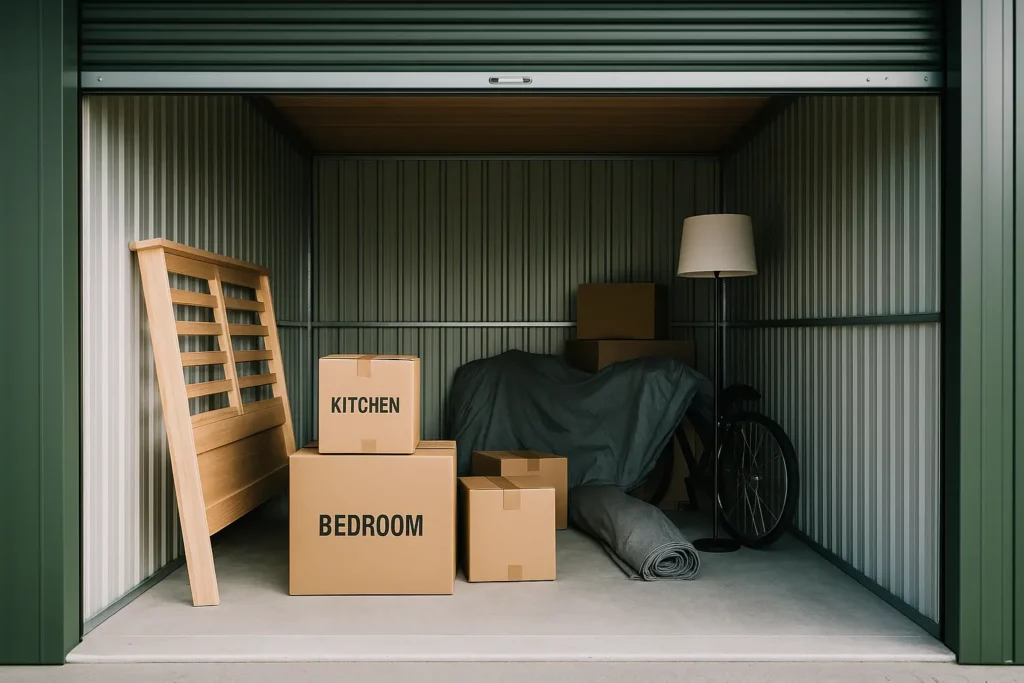When you hear the words interest rate cut, you might breathe a sigh of relief. But in today’s uncertain climate, even a small shift in UK mortgage rates can mean big changes for homeowners, renters, and anyone planning a move. This year, after a turbulent economic period sparked in part by global political tensions and tariff talk, some lenders have started trimming mortgage rates—good news for many, but not necessarily a fix-all. Understanding the trends, and what they might mean for you, is essential whether you’re staying put, upsizing, or temporarily moving in with family.
In this article, we’ll explore the latest developments in UK mortgage rates, what’s driving the changes, and how these shifts affect people during key life transitions. We’ll also look at practical ways to stay flexible—especially if moving, renovating, or waiting for a new deal.
What’s Happening With UK Mortgage Rates in 2025?
As of April 2025, the average mortgage rates in the UK have started to decline slightly after hitting multi-year highs in 2023.
According to Moneyfacts, the average rate for:
- Two-year fixed mortgages is now 5.32%
- Five-year fixed mortgages is 5.17%
These figures are down from peaks in late 2023, when rates soared above 6.8%. The pressure came following the economic aftershock of Prime Minister Liz Truss’s mini-budget and global market instability, with the latest wave of concern driven by US President Trump’s renewed tariff policies.
Now, with economic uncertainty growing and inflation showing signs of easing, financial markets are anticipating up to three cuts from the Bank of England this year—raising hopes that mortgage rates may continue to fall.
Why Are UK Mortgage Rates Falling?
Several factors are contributing to this downward trend:
- Global instability – US tariff announcements have caused jitters in financial markets, fuelling predictions of interest rate cuts globally.
- Bank of England policy – The base interest rate currently stands at 4.5%, but expectations are rising that it will be cut more aggressively than previously forecast.
- Swap rates – These are the rates lenders pay to borrow money, and they influence how mortgage deals are priced. As swap rates fall, mortgage lenders follow suit.
Sarah Coles, Head of Personal Finance at Hargreaves Lansdown, said, “Mortgage companies start to price in rate changes right away… we’ve already seen mortgage rates start to fall and should see plenty of that in the coming days.”
Laith Khalaf from AJ Bell also added, “Trump’s tariff announcement might have created havoc in the stock market, but there could be a silver lining for UK mortgage borrowers.”
Still, not everyone will benefit equally—particularly first-time buyers or those coming off fixed deals from the pre-2022 low-rate era (Source: BBC).
What This Means for Homeowners, Movers, and Renters

If you’re currently:
- On a fixed-rate mortgage ending this year (like 1.3 million others, according to the FCA), you may face higher payments—but slightly better deals than feared last year.
- A first-time buyer, you’ll want to monitor the market closely. Some of the lowest advertised rates may come with high fees or be restricted to borrowers with large deposits.
- Moving house, this could be a golden window to lock in a decent deal before rates rise again—or drop further.
- Renting or in temporary housing, you may be postponing a home purchase and looking to wait out the uncertainty.
Whatever your situation, flexibility is key. And that’s where storage can quietly play a role…
Life in Transition: Where Storage Becomes Part of the Plan
While mortgage rates are dominating headlines, the knock-on effects are playing out in people’s homes—quite literally.
Whether you’re:
- Temporarily moving in with family to save for a deposit
- Downsizing to reduce housing costs
- Delaying a move while waiting for a better mortgage rate
- Renovating your current home rather than moving altogether
…you’re facing the same question: Where does everything go in the meantime?
That’s where a flexible, short-term storage option—like what Space Centre Self Storage offers—comes in.
No hard sell. Just practical help when life feels in limbo.
You can use self storage to:
- Keep larger furniture safe while co-living or renting
- Store seasonal or sentimental items offsite
- Clear out space to stage your home for sale
- Move non-essentials out while redecorating or replacing fixtures
Recommended: Moving House? How a Self Storage Unit Can Save Your Sanity

How to Prepare for Moving House in a Changing Market
Let’s not forget: even with better mortgage deals on the horizon, moving house is still one of the most stressful things you’ll do. Rates, logistics, removals, delays—it adds up.
Here are a few practical tips to ease the load:
- Get mortgage advice early – Rates move fast. Don’t assume yesterday’s best deal is still available.
- Declutter in stages – Start packing the non-essentials now.
- Use short-term storage – Even for just a few weeks, it can give you more control.
- Label boxes properly – Save your future self a headache.
- Keep essentials to hand – Avoid packing passports, chargers, or vital documents.
Recommended: Use Our Storage Unit Space Calculator
Closing Thoughts
UK mortgage rates are shifting, and the ripple effects are being felt across the country. Whether you’re a homeowner, buyer, or just trying to figure out your next move, now’s the time to plan with flexibility in mind.
And while self storage won’t change interest rates, it can help make your next transition that much smoother—whether you’re downsizing, sharing space, or waiting on your dream home to come through.
For affordable, flexible storage in Bristol, Stroud, Stonehouse, Gloucester & Cheltenham, Space Centre Self Storage is here when you need us—no pressure, just practical support.